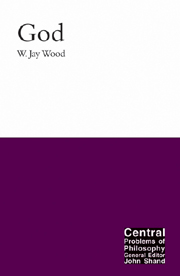Book contents
- Frontmatter
- Contents
- Introduction
- 1 Design arguments
- 2 Cosmological arguments
- 3 The ontological argument
- 4 The moral argument for God's existence
- 5 Religious experience and cumulative case arguments
- 6 Religious belief without evidence
- 7 The problem of suffering
- 8 The nature of God
- Conclusion
- Notes
- Bibliography
- Index
8 - The nature of God
- Frontmatter
- Contents
- Introduction
- 1 Design arguments
- 2 Cosmological arguments
- 3 The ontological argument
- 4 The moral argument for God's existence
- 5 Religious experience and cumulative case arguments
- 6 Religious belief without evidence
- 7 The problem of suffering
- 8 The nature of God
- Conclusion
- Notes
- Bibliography
- Index
Summary
Why philosophize about God?
If God exists, one is naturally led to ask what sort of being is God. Theists and non-theists alike have a stake in posing the question. Theists, of course, have in interest in knowing the central object of their devotion. Christians, for instance, claim that the highest state of heavenly beatitude consists in “seeing God face to face”, of “knowing as we have been known”. In his Proslogion, Anselm of Canterbury prays to God: “Lord, You give understanding to faith, grant me that I may understand, as much as You see fit, that You exist as we believe You to exist, and that You are what we believe You to be” (1998: 87). Anselm takes metaphysical investigations into God's nature to follow naturally upon one's desire to know better the being one worships. As a lover wishes to know all he can of the beloved, so Anselm wishes to know God, as God is the object of his heart's highest desire. At the very least, authentic devotion to God requires that one endeavour to think truthfully about God.
Some critics of theism urge careful study of the metaphysics of theism as a way of showing that the concept of an omnipotent, omniscient and omnibenevolent being is incoherent and, if incoherent, irrational. We would not bother to investigate the intellectual credentials of the claim that in the remotest parts of Australia there reside animals that are simultaneously insect and mammal since, given what we know about the properties of each, we know this to be a physical impossibility.
- Type
- Chapter
- Information
- God , pp. 187 - 222Publisher: Acumen PublishingPrint publication year: 2010

